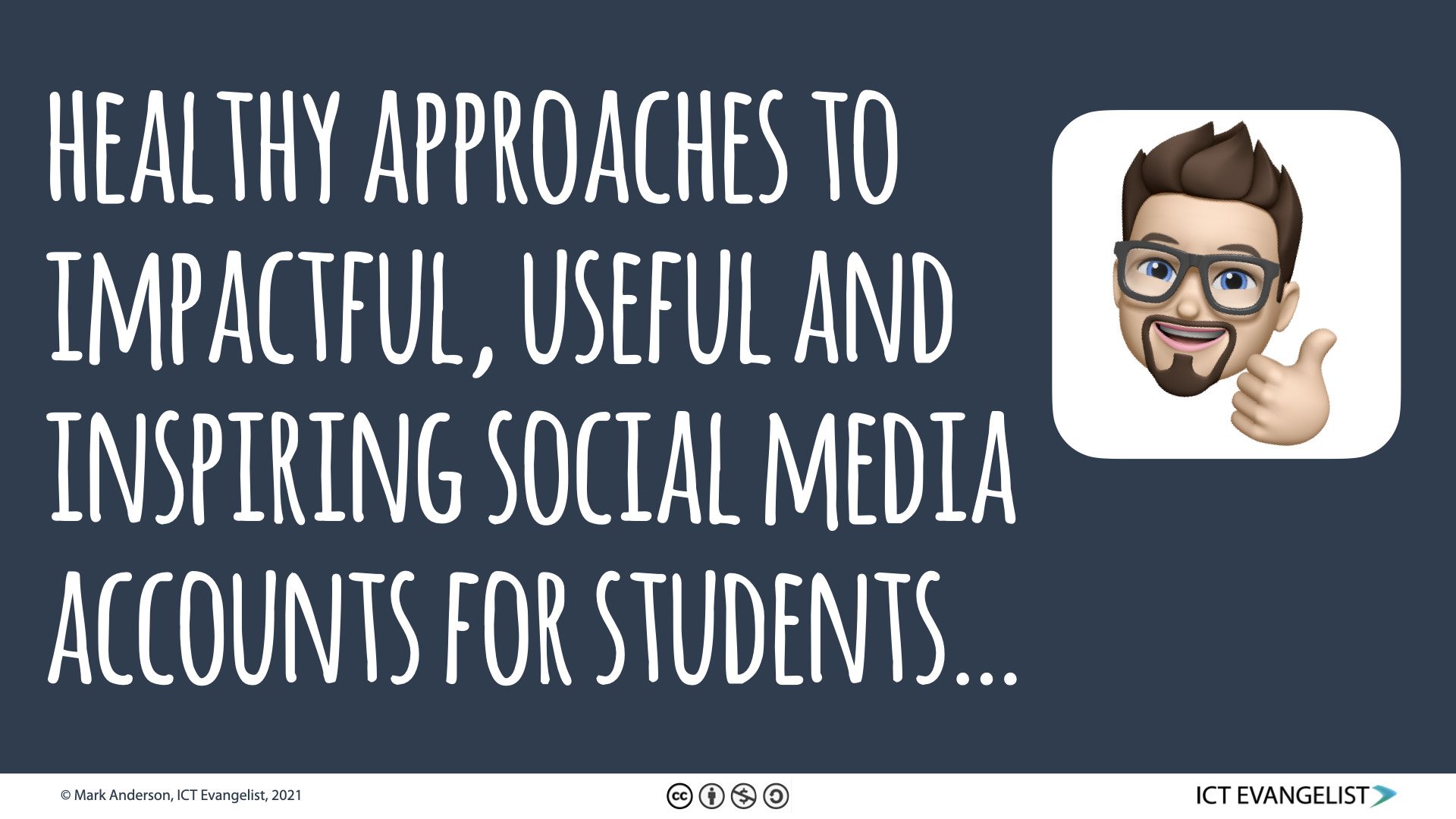
Your students probably already have accounts on Instagram, TikTok, YouTube, Twitter, Snapchat and so on, but for those starting on their social media journey and keen to make an impact, there’s a lot to learn and remember as they navigate this new, exciting, connected world.
Recently, I’ve been working with secondary school students on digital citizenship, etiquette, online safety and more as part of their learning and providing support with a student digital leader programme. It’s been really interesting to get their perspectives on social media and discuss with them how they can use it purposefully and positively and into the future. With that in mind, I thought I’d share some of the basic etiquette guidelines which are so important as they set out to make their own stamp on the world. Hopefully, you’ll find them useful to discuss with your students, too…
 Create a strong digital footprint
Create a strong digital footprint
The concept of ‘forever’ is sometimes hard to grasp when you’re a teenager, but that’s how long your digital footprint is going to be around, so it’s really important to make it a positive one. Of course, it doesn’t hurt to have fun online and share the good times but it’s worth remembering that somewhere down the line, a future employer may just check back on your social media history and make a judgment on you based on something you posted years ago. These days, it does happen, and checking social media profiles is increasingly a standard part of company recruitment processes. So doing a quick mental check with yourself on the tone and content of what you post – before you post it – will help you retain your integrity and might help you land a job offer later on!
Be genuine and authentic
Think of what you want to do, what you want to try and achieve and, above all, be true to yourself. A great role model for being genuine is Greta Thunberg. Unlike some, she didn’t set out with the sole aim of getting millions of followers on Twitter; she simply had a genuine passion for a cause and ran with it. She is true to her values and that shines through. Her social media ‘success’ came as a result of her commitment to what she believes in. Being genuine really resonates, whereas being fake does the opposite.
Do your best to ‘keep it real’
We’ve all heard of people posting about their ‘perfect’ lives on Instagram. Nobody’s life is ever perfect, so don’t create pressure for yourself (and others) by trying to be something you’re not. You’ll either get caught out in a lie or become so preoccupied trying to present your vision of a charmed life that your mental health will start to suffer. It sounds dramatic, but it has happened many times over. Instead, just be honest. It’s much easier. We are all human and everybody understands that life has its ups and downs. Your followers will appreciate your openness and will feel they can relate to you much more as a result.
“Be kind to everyone on the way up; you’ll meet the same people on the way down.” – Wilson Mizner
Do things at regular times
Being a member of the online social community, gaining followers and being part of a big network of people is a great feeling. Once you have a body of followers with whom you share and interact regularly, it’s a good idea to maintain your presence by posting regularly, rather than being sporadic. What does ‘regularly’ mean? We’re not talking on the dot at 1, 2 and 3 pm each day, but it could simply mean posting some great quality content once a day or every other day that your followers will appreciate (depending on the topic, the platform and whatever you feel is appropriate and achievable). It’s much better than churning out multiple posts about nothing in particular that aren’t even relevant to most people. That’s a sure-fire way to get unfollowed! So by being ‘regular’, we mean being present, visible and consistent – and someone your followers feel they can build a rapport with.
Share your failures AND your successes
When I go to work with schools, teachers and leaders often say, “Thanks for the ideas, Mark. You’ve really helped us!” But actually, I often get as much out of working with schools as I do from all the things I share.
If you’re setting out to interact on social media with a particular purpose, then it’s important to remember that sharing your failures is just as important as sharing your successes. It not only shows that you’re human, but others can learn from you not to make the same mistakes in what they are doing. They’ll be really grateful you shared your experience and it will only be a matter of time before you’ll also benefit from learning how to do something (or not) from someone else in your network!
And don’t forget to THINK!
A popular acrostic shared in my poster from many years ago back in 2013 is one which features the acrostic, ‘THINK’. It asks you to think before you post on social media, asking yourself, is what you’re about to share: true, helpful, inspiring, necessary and kind…
I hope you find these points useful as conversation starters that you can use with your students. If you’d be interested in me working with your school on digital citizenship, etiquette, social media or student digital leaders, then please get in touch here.















